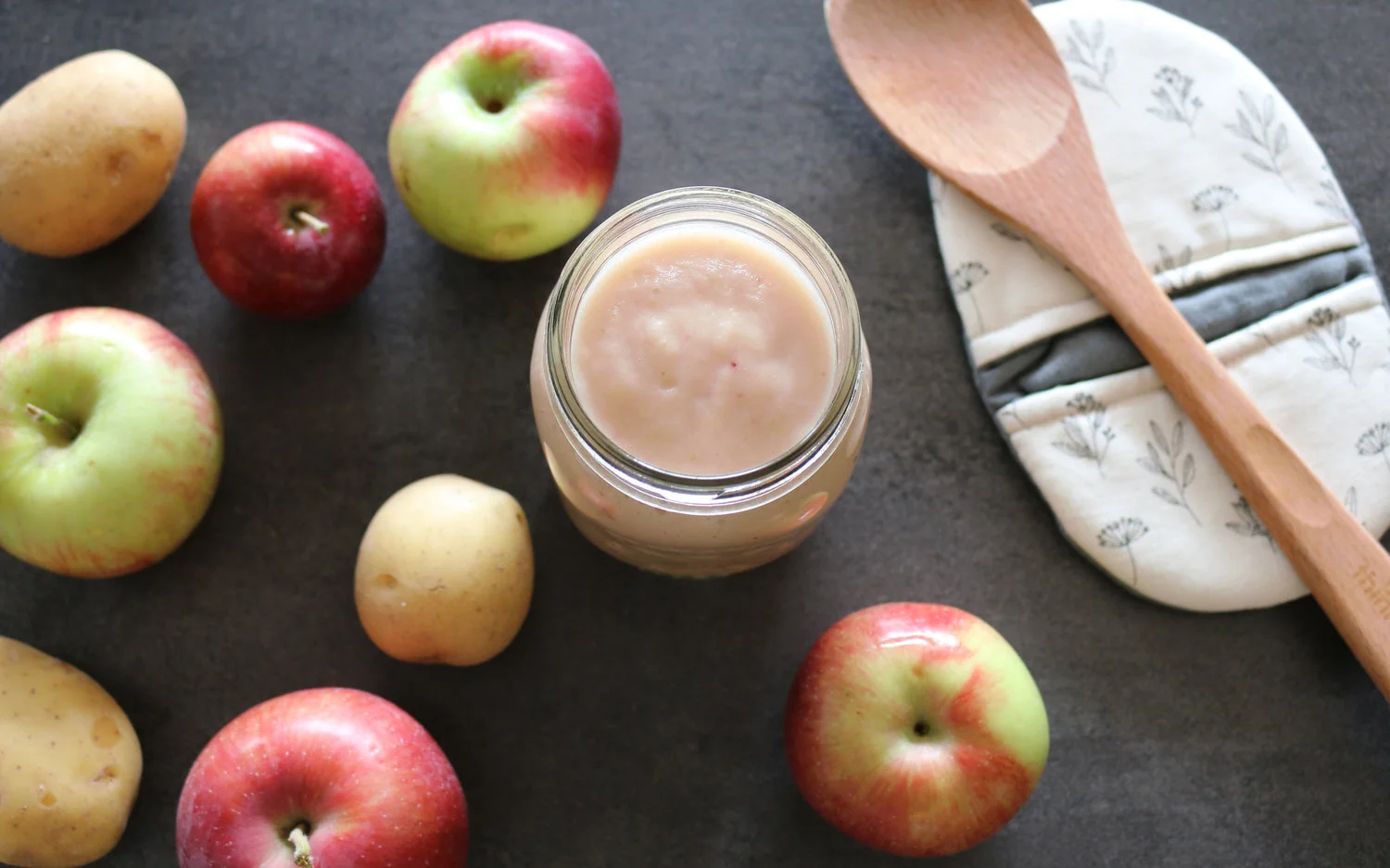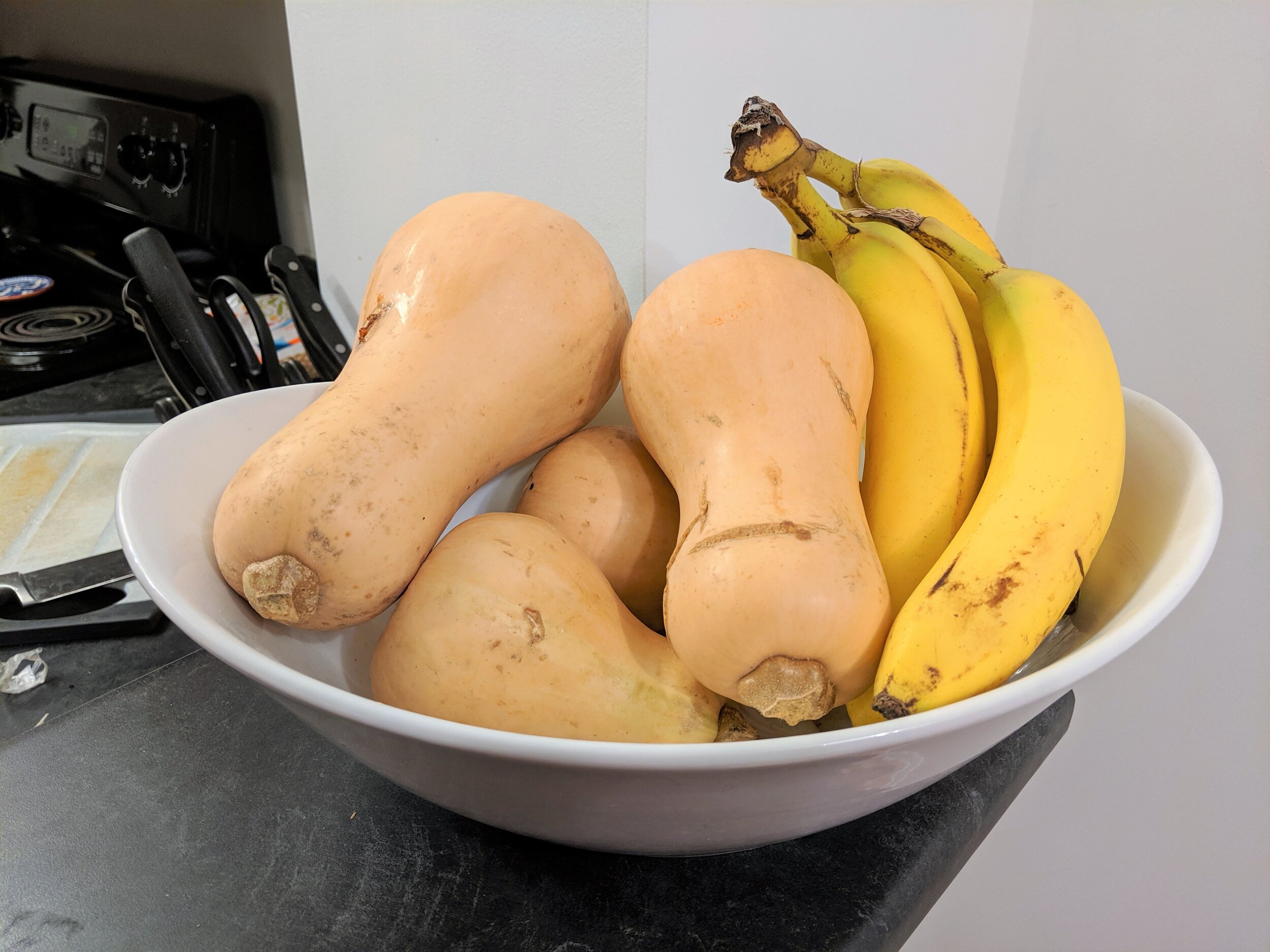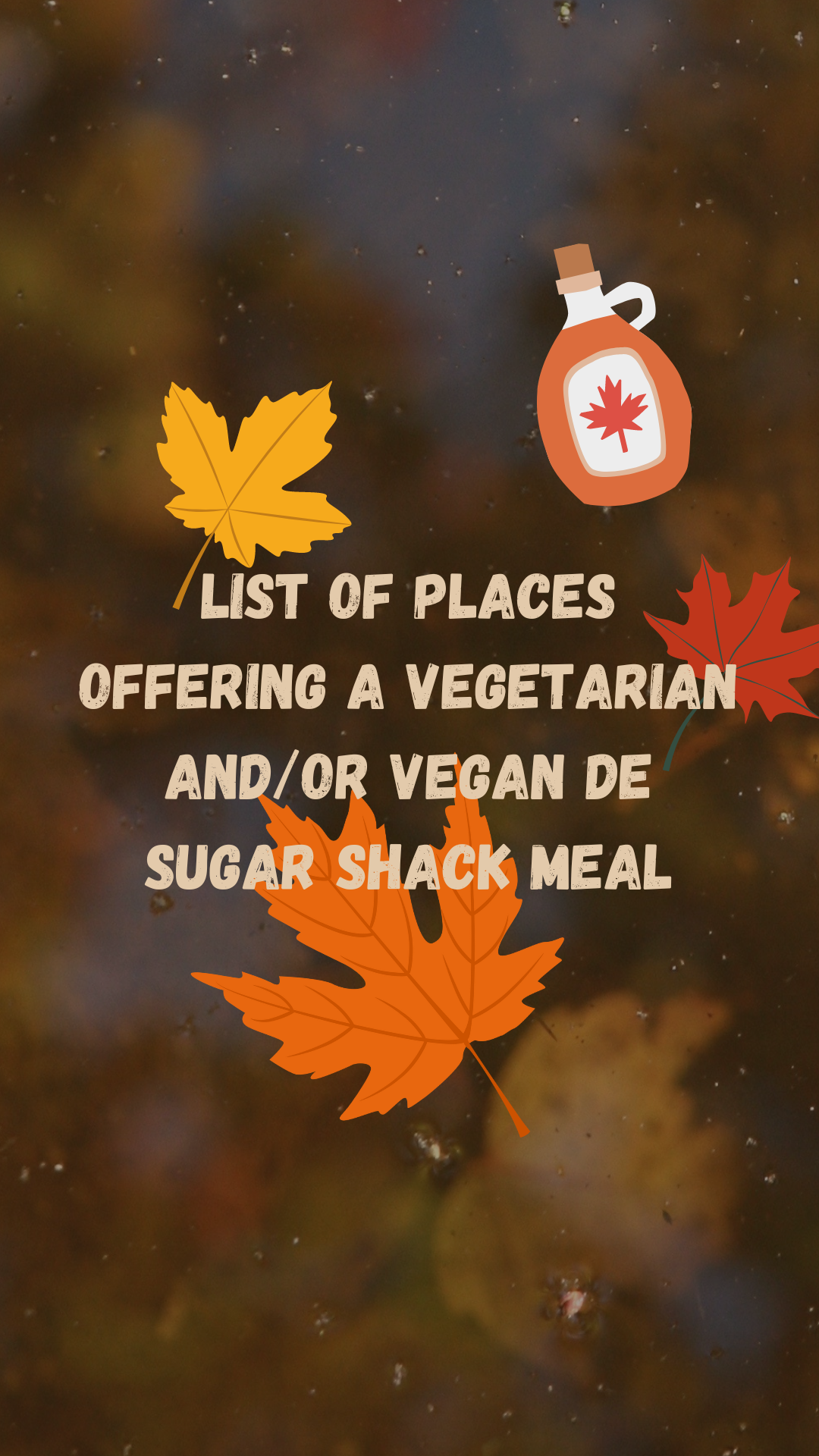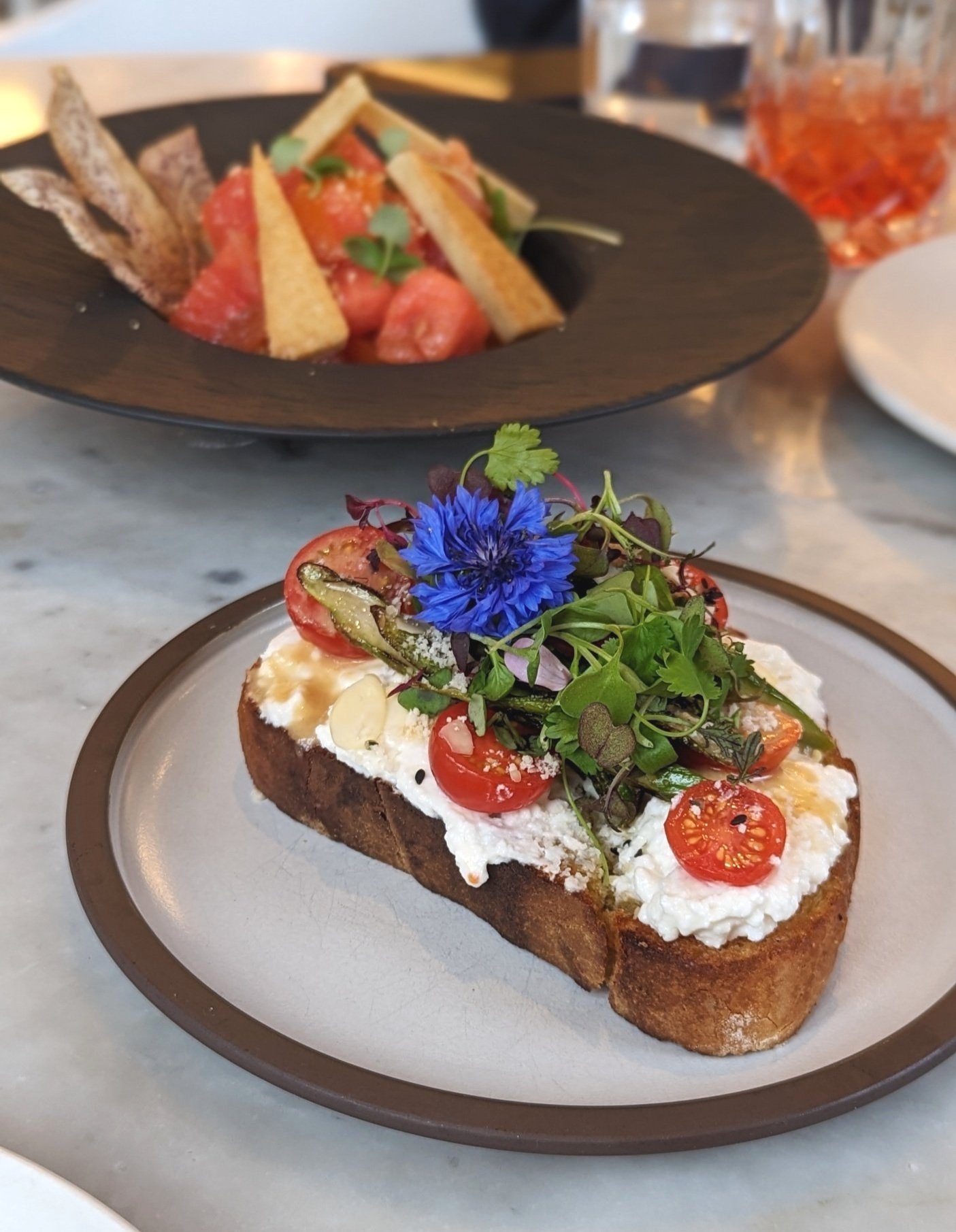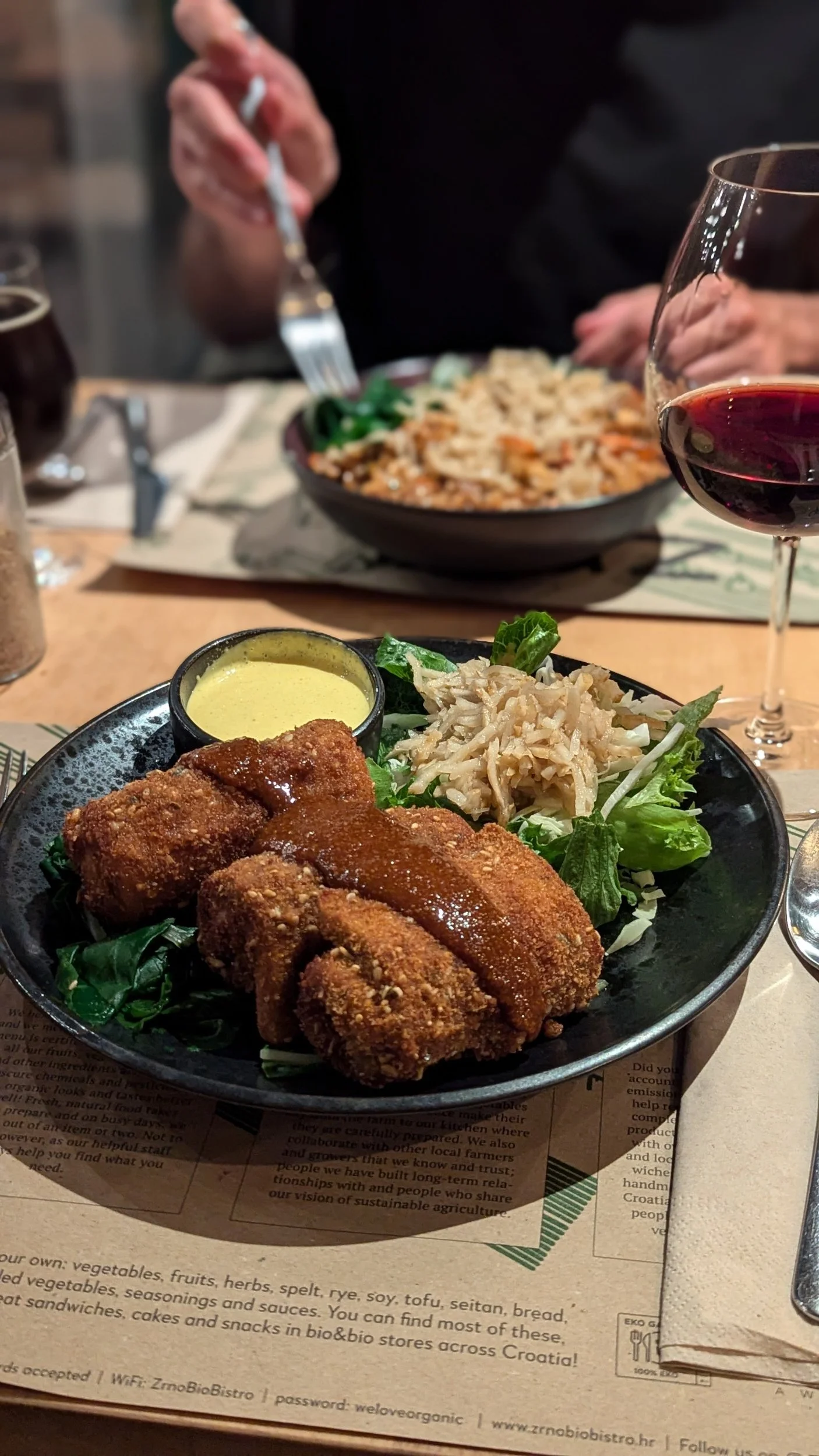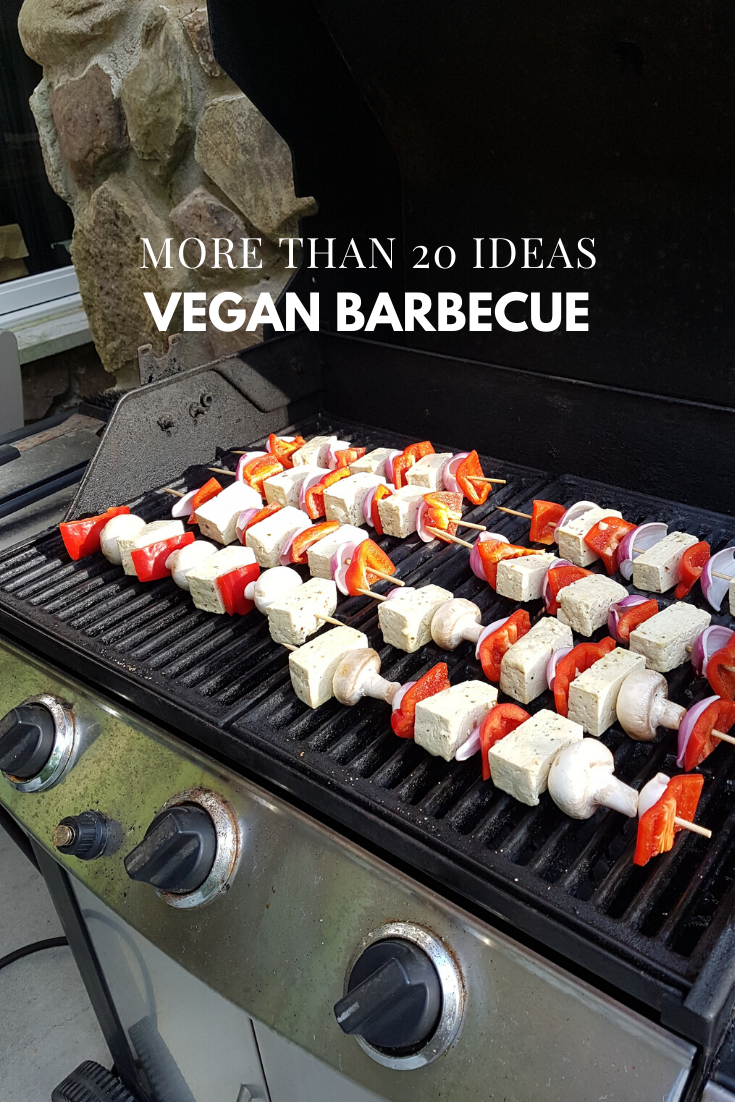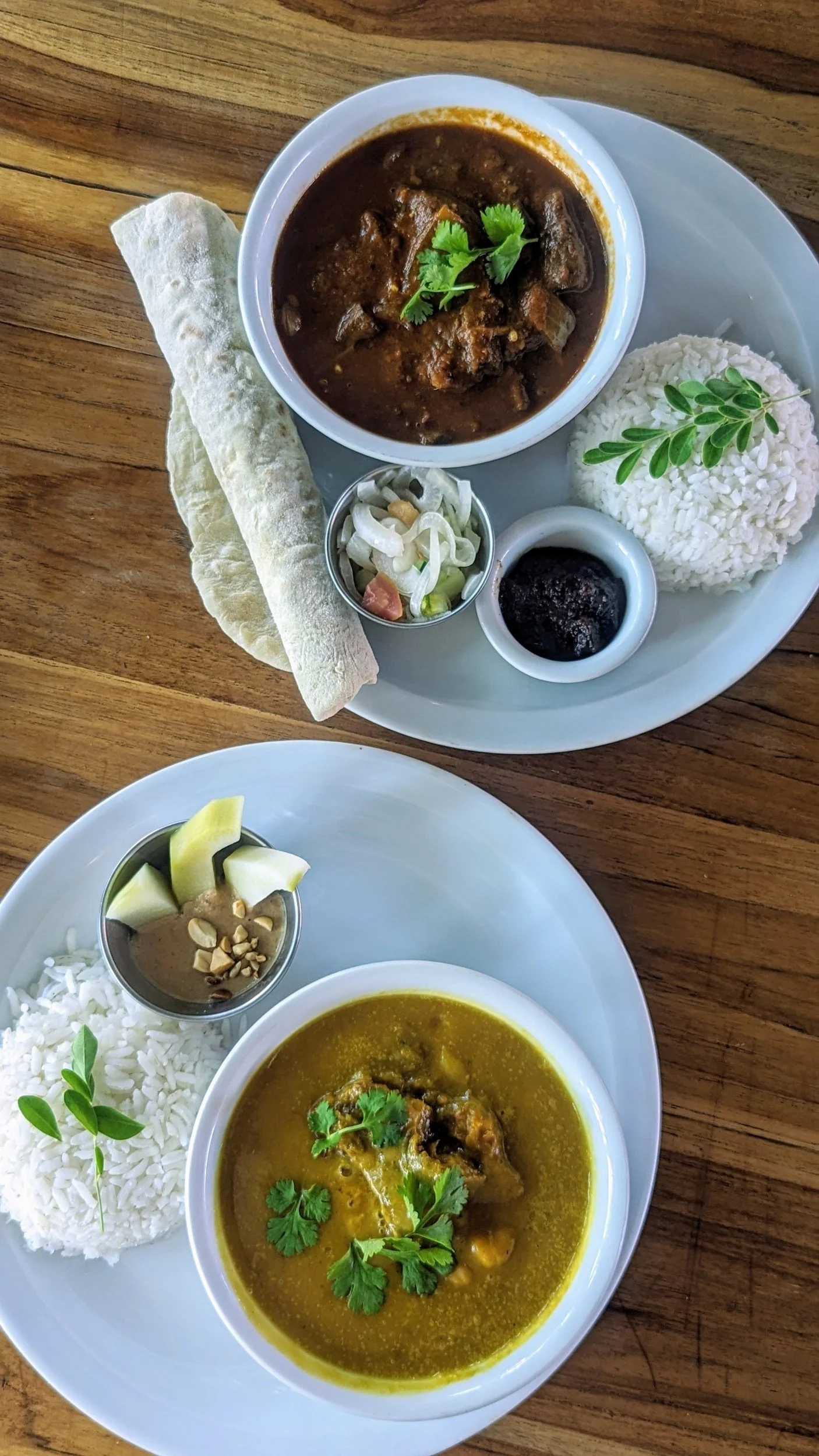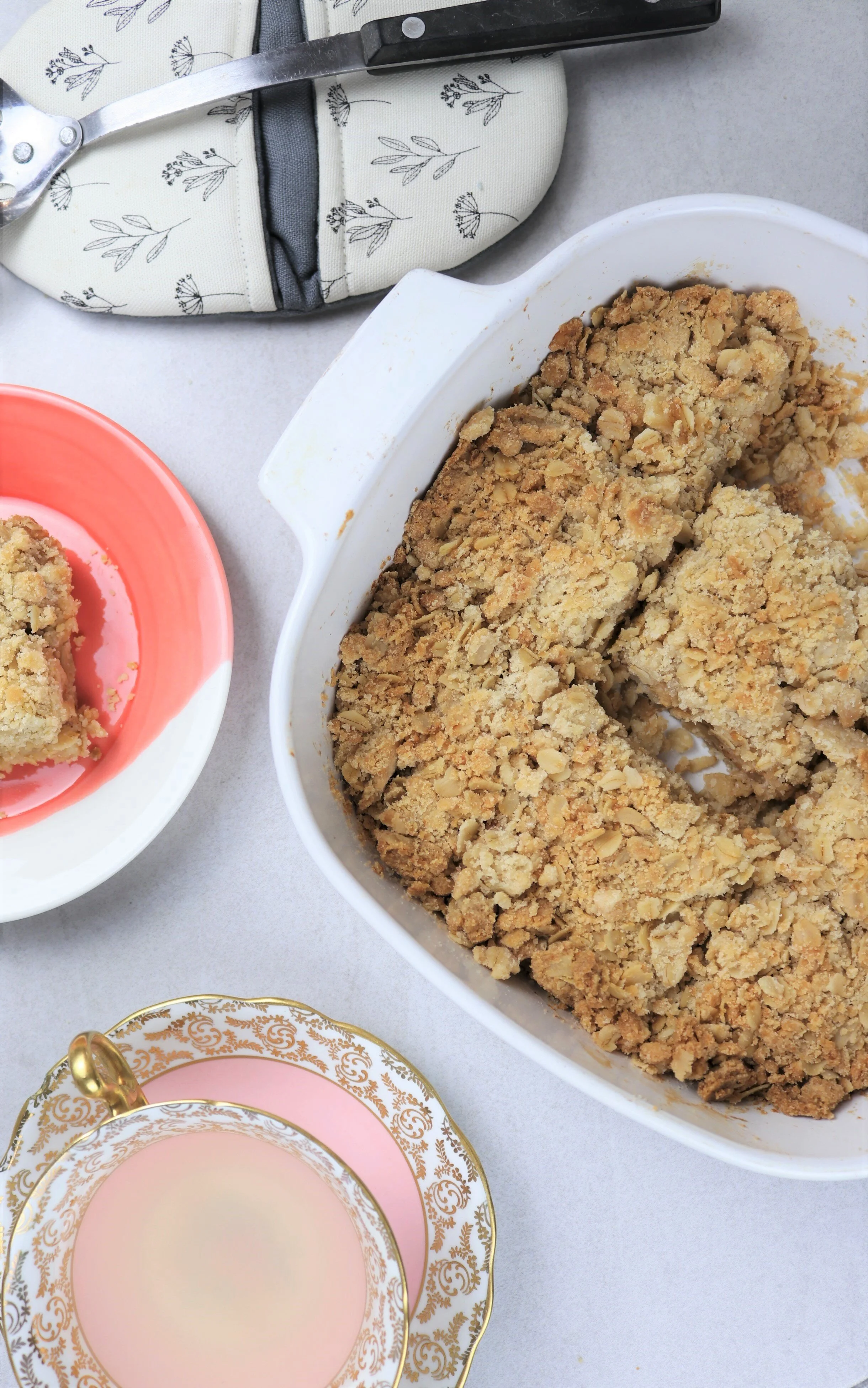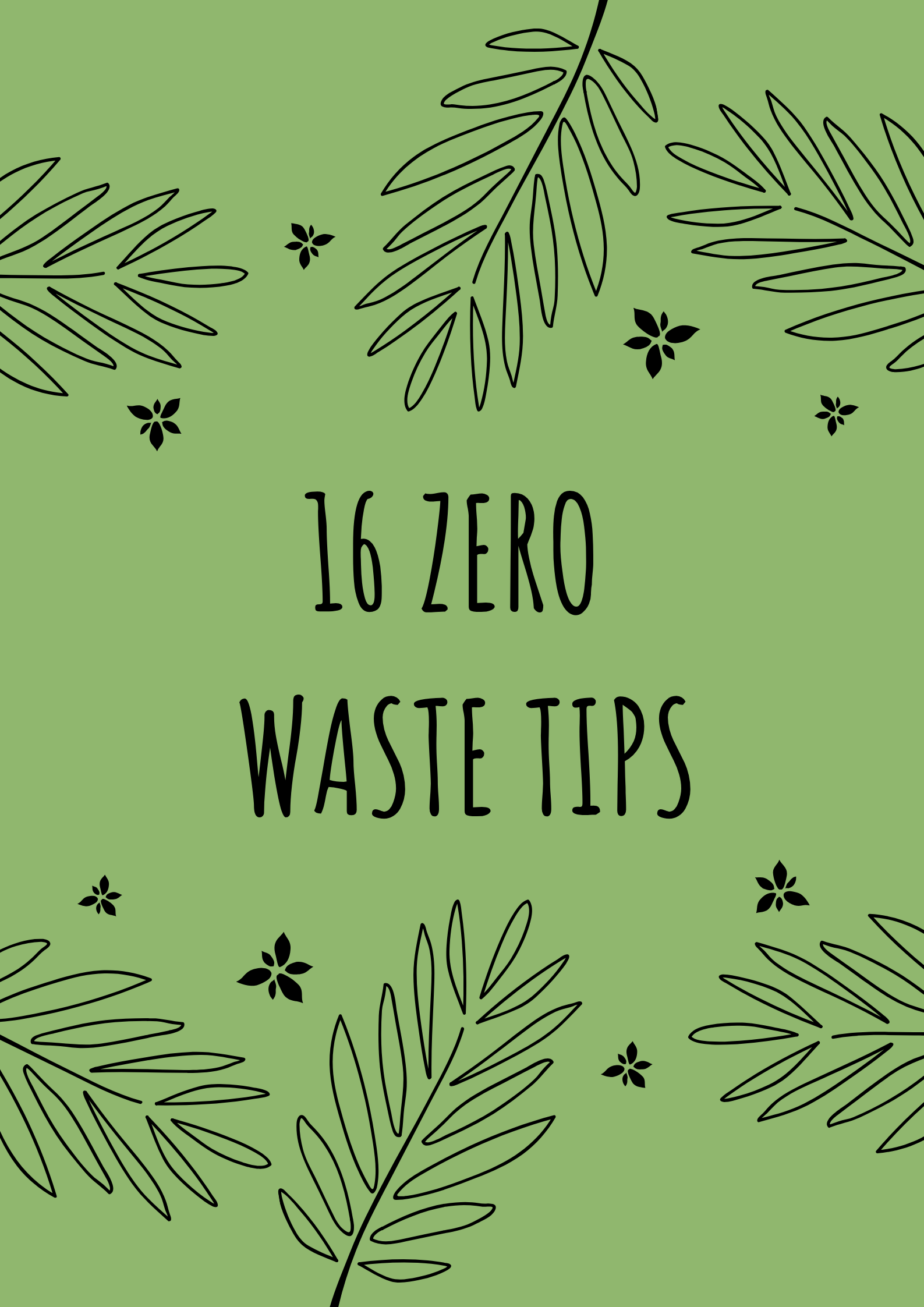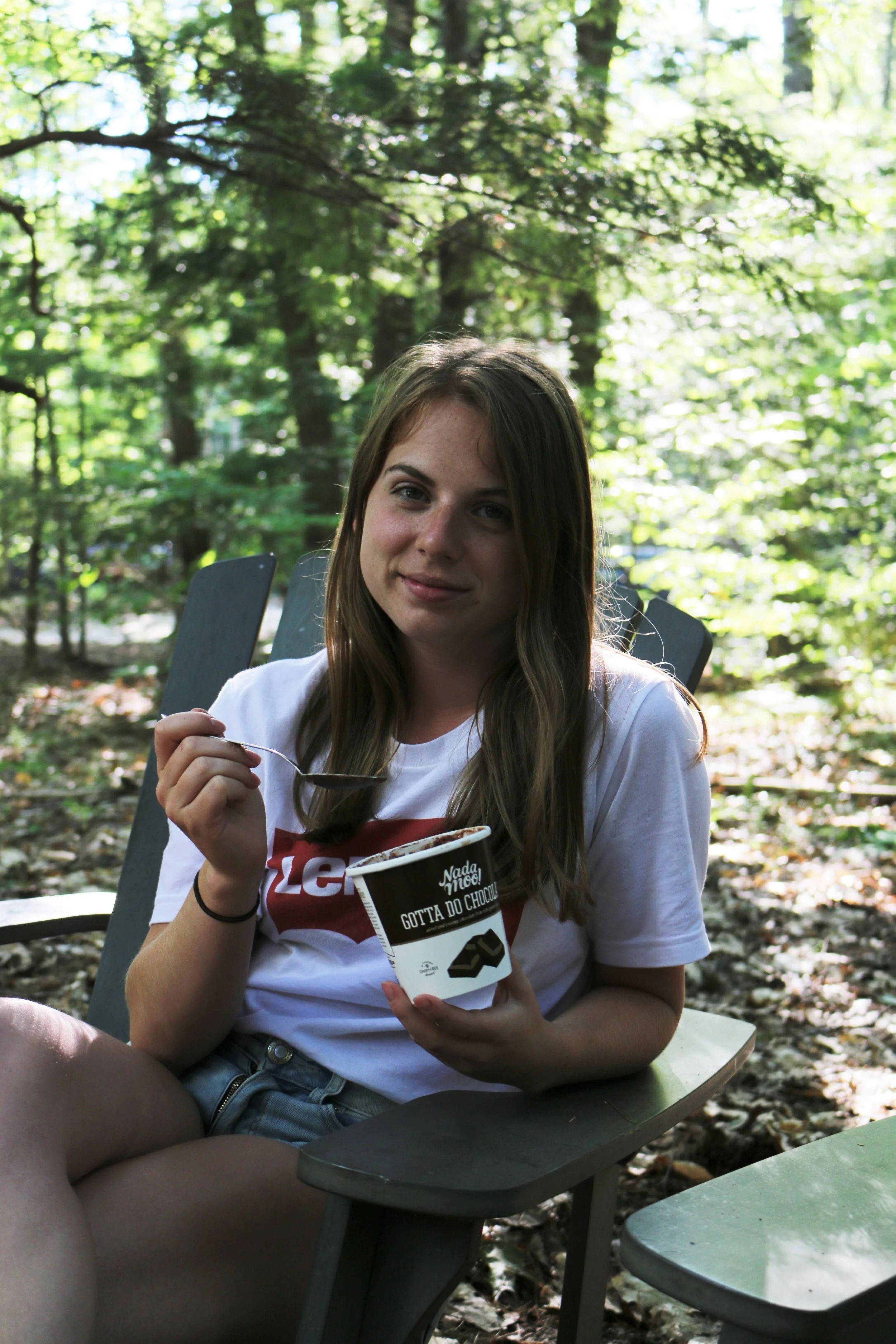Zero Waste Cooking
12 tips to be more environmentally friendly in your kitchen
1- Use your kitchen scraps
With your vegetable scraps, you can make an economical vegetable broth. The planet and your wallet will thank you!
How? You can accumulate vegetable scraps in an airtight bag that you store in the freezer. As soon as you have a good quantity, take the bag out of the freezer to prepare your broth.
Let the leftovers simmer for around 30 minutes to get the maximum flavor and vitamins.
Then strain the broth using a colander.
Remove pieces of vegetables and seasonings that cannot be eaten.
Source: Olo Foundation
2- Compost
Why ?
When sent to landfill, organic matter decomposes since it is deprived of air and releases greenhouse gases into the environment (methane). Gases that are harmful to the environment. Organic matter also generates leachate (garbage juice) which, despite the precautions taken by the landfill, can reach the water table and contaminate our soil and drinking water. When recycled biologically, by composting or by anaerobic digestion, organic matter is rather valued in compost or energy (biogas). - Reduction mission
And if we find it disgusting, we do like my mother and put our leftovers in a paper bag or a container that goes in the freezer.
You don’t have compost at home because your city doesn’t collect it or because you live in a condo? Search for community compost bins in your neighborhood.
3- Knowing what is freezable
Squash : cut into cubes and frozen in quantities of 2 cups. They will be perfect for your curry recipes, especially in winter, when the variety of vegetables at the grocery store is reduced.
Corn : cut the kernels and freeze quantities of 1 cup for your chili recipes.
Bananas : freeze overripe bananas to make muffins, banana bread and also to replace eggs in dessert recipes. If you use these bananas to make nice cream (example of a nice cream recipe), it’s best to peel them beforehand.
Zucchinis : grated and frozen for cake or soup.
Bread baguette : we freeze it whole and when it comes time to eat it, we run it under cold water and put it in the oven for about 10 minutes at 450 F. It’ll become crispy again.
Berries : after a good harvest of berries (strawberries, raspberries, blueberries, etc.), remember to freeze a portion of them which will be perfect for smoothies and other desserts during winter.
Tofu : freeze it in its packaging. When unfrozen and ready to be cooked, squeeze it well to get the water out.
Legumes : freeze them in masson jars
* If using freezer bags, think of washing and reusing them
4- Improve the conservation of your food
Lettuce / spinach / fresh herbs : roll it in a wet paper towel and put it in a plastic bag. I also found a zero-waste alternative to this, which is a plant storage bags (Fresco brand at the eco-loco store).
Refrigerate : this slows down the aging of fruits and vegetables and allows them to conserve their moisture.
Bread : refrigerate or freeze and take out one slice at a time
Berries : do not wash them before refrigerate and put them not in an airtight container
You can find several other tricks by doing some research on the Internet.
5- Use your soft / tasteless fruits and veggies
Despite our efforts to preserve our food well, sometimes we end up with soft or tasteless fruits or vegetables ... so here's how to use them:
Soft vegetables : cook them asap which will give you a few more days to eat them
Soft apples : make a soup (examples of soup with apples and radishes and soup with acorn squash and apples)
Apples with no taste : make a salad (example this apple, bean and cranberry salad)
Fruits with no taste : make a fruit salad with orange juice
Lettuce / soft celery : soak in a bowl of cold water for about 1 hour to make it crispy again
6- Buy ugly & unpackaged fruits / veggies
It goes without saying that overwrapping pollutes the planet considerably. So do your shopping in bulk by bringing your jars to a zero-waste store. If you go to a regular grocery store, go for unpackaged foods.
Also, several grocery stores offer ugly vegetables at a lower cost, such as Lufa farms or Second Life.
7- Cook your legumes
Buy your legumes in bulk, cook them in large quantities and freeze them in Mason jars. You will save dozens of cans per year and several dollars too! To find out how, see the article here.
8- Buy in bulk
Buying your legumes in bulk made you want to avoid overpackaging? You can do the rest of your groceries in bulk! Nuts, flours, fruits, vegetables, everything is possible!
If you buy your vegetable broth, consider buying it in powder or in small blocks that you dilute in water. This creates less waste than a container of plasticboard.
9- Swap the disposable for the reusable
No more plastic wrap, sandwich bags, parchment paper and single-use aluminum foil : you can now find them all reusable.
Food wrap (saran wrap):
Reusable food wraps are mainly made from beeswax. Several companies make them and these can be ordered, for example, from Lufa Farms.
There are also fabric bowl covers with elastic bands to replace food wrap. Mine comes from Ricardo.
Sandwich and snack bags : reusable made of PUL (laminated polyurethane) which are machine washable. I took mine from the company Demain Demain which makes them from recycled water bottles.
Parchment paper on baking sheets : use silicone baking mats. It works with cookies, but also potatoes, chickpeas and other baked foods. The majority of kitchen stores sell them, like Ricardo.
Paper muffin molds : buy silicone molds or a silicone muffin pan that doesn’t require muffin molds.
PaperTowel : A mess in the kitchen? Think about it twice before grabbing the paper towel roll and get some good old rags.
Fabric bowl cover
Reusable sandwich bags
10- Oil
Who else is used to oiling their dishes of margarine using waxed paper or a sandwich bag? Instead, brush with neutral oil (sunflower, vegetable).
11 - Wine
Hosting a housewarming party and makes you inherit a dozen open and unfinished bottles of wine. Empty them into mason jars (depending on the type : white, red or rosé wine) to use in a pasta sauce.
12- Make a meal schedule
Having a meal schedule greatly helps to reduce waste! It allows you not to forget dishes cooked earlier in the week or reminds you not to cook in too large a quantity (this happens to me too often!).

